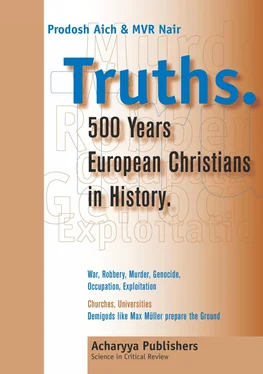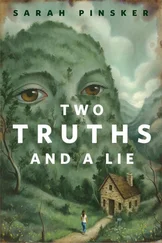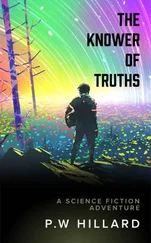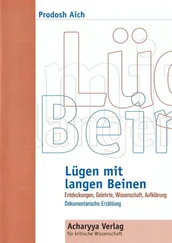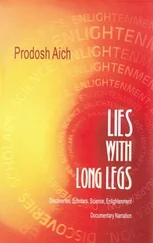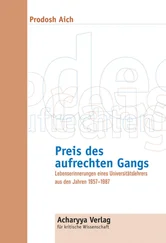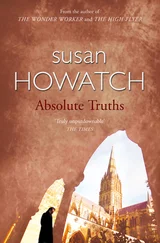In our present context we put two strong marks of attention looking a little ahead. None of the protagonists teaching “Sanskrit” in Europe at the post-high school level has taken trouble to learn the Sanskrit language in India. This is number one. Secondly, none of them has ever an opportunity to hear the original sound of the language “ called” Sanskrit. These “Indologists” have claimed to have learnt the language namedSanskrit all by their own self on the basis of hand written Sanskrit manuscripts only. These manuscripts were brought to Europe indiscriminately as part of the booties of European robbers in India. Is it comprehensible how it could have functioned to learn the Sanskrit language solely on the basis of these booties?
Hermann Brockhauslearnt Sanskrit from persons who believed that the ancient language calledSanskrit could be learnt by reading tiny simple episodes in Mahabharatalike Nala with the help of available Arabic and Persian translations of Sanskrit texts. As already mentioned, we shall get into the language named“Sanskrit”, on “Indologists” and on Hermann Brockhauswho teaches “Sanskrit Grammar” and “Nala” at Leipzig University later in the next chapter. Here we just maintain that the knowledge of the language calledSanskrit of Hermann Brockhaushas been at best rudimentary.
Before Friedrich Maximilian Müllerbegins his 4th semester, i.e. WS 1842/1843, he does not try to earn his first academic degree of “Baccalaureates”. How could he? He is still in the phase of orientation. We recall here the stipulation of the then Leipzig University. The first academic degree of “Baccalaureates” can be earned after completing three semesters. No age limit is stipulated. An age limit is stipulated only for acquiring the academic degree of “Magister artium” . One has to complete his 21 years of age, at least six tightly organized semesters and having a “Baccalaureates” as the first academic degree.
It appears, however, that Friedrich Maximilian Müllerintends to earn his first academic degree of “Baccalaureates” after completing his winter term. He almost doubles the number of lectures to be attended:
1 Aristophanes’ Vespac Gottfried Hermann
2 Plauti Rudens Gottfried Hermann
3 Greek Syntax Gottfried Hermann
4 Greek and Latin Seminary Hermann & Klotze
5 Latin Society P. M. Haupt
6 Juvenal Becker
7 Metaphysics and Logic Weisse
8 Philosophy of History Weisse
9 Philosophical Society Weisse
10 Philosophical Society Drobish
11 History of Indian Literature Hermann Brockhaus
12 Probodha Chandrodaya Hermann Brockhaus
Friedrich Maximilian Müllerhas obviously deleted his fancy for German Literature. He concentrates on Greek, Latin and Philosophy. He continues attending lectures offered by Hermann Brockhaus: History of Indian Literature and Probodha Chandrodaya . Probodha Chandrodaya is one of the dramas with allegories, originally written in the Sanskrit language, composed in a simple form, which arrived in Europe via British occupants rather accidently. When it arrived in England, it is already a translation, a translation and a translation of translations. Hermann Brockhausgets hold of a translation done in 1812 by one J. Taylor, M.D, (Doctorate in Medicine).
This Dr.Taylorclaimed to have made his translation from an original Sanskrit publication of this drama written by one Krishna Misri. And our search to find this Dr. J. Taylorand Krishna Misriin the web search engines does not lead us to anywhere. Instead, we are always referred back to Hermann Brockhaus. We are dumbfounded.
We write the WS 1842/1843. Hermann Brockhausreads at Leipzig University “History of Indian Literature” and “Probodha Chandrodaya”. To judge what it means we must know about what is current in Europe as “History of Indian Literature” and how this knowledge on Indian literature has travelled from India to Europe. The same procedure is needed concerning “Probodha Chandrodaya”. We leave these issues here as planned items for the next chapter. Presently we take a note that Hermann Brockhausknows English and we focus on Friedrich Maximilian Müller’s studies at Leipzig.
In the beginning of SS 1843 Friedrich Maximilian Mülleris 19 and half years old. There is no indication in “My Autobiography” , nor is there a record at Leipzig University, that he sits in examinations to acquire his first academic degree of “Baccalaureates” . There is no indication whatsoever that he informs his mother that he has not tried even to acquire his first academic degree of “Baccalaureates” . We are apprehensive. What is happening with him? There is no indication whatsoever that he informs the Anhalt-Dessau government authorities on the progress of his studies. He is drawing a scholarship for poor students for a limited period. Has he developed exam anxieties or is he facing difficulties to choose his subjects for exam?
We continue to read in the 45 pages titled “University” in “My Autobiography” written by Max Müller. We remember his two major sufferings: Poverty and chronic headaches. There is not a word on his major handicaps while studying at Leipzig University. As it is in the previous chapters of his autobiography presented by Max Müller, essential and crucial facts about his real life at Leipzig University are almost concealed in the midst of general descriptions. We read, for example, an authentically vivid description that leads us directly to the German educational set up but only indirectly to Friedrich Maximilianas well (p.117-119, “My Autobiography” ):
“It is in every respect a great jump from a German school to a German university. At school a boy, even in the highest form, has little choice. All his lessons are laid down for him; he has to learn what he is told, whether he likes it or not. Few only venture on books outside the prescribed curriculum. There is an examination at the end of every half-year, and a boy must pass it well to get into higher form. Boys at public school (gymnasium), if they cannot pass their examination at the proper time, are advised to go to another school, and to prepare for a career in which classical languages are less important.
I must say at once that when I matriculated at Leipzig, in the summer of 1841, I was still very young and very immature. I had determined to study philology, chiefly Greek and Latin, but the fare spread out by the professors was much too tempting. I read Greek and Latin without difficulty; I often read classical authors without ever attempting to translate them; I also wrote Latin easily. Some of the professors lectured in Latin, and at our academic societies Latin was always spoken. I soon became a member of the classical seminary under Gottfried Hermann, and of the Latin Society under Professor Haupt. ... I still have my Collegien-Buch, in which every professor has to attest what lectures one has attended. The number of lectures on various subjects which I attended is quite amazing, and I should have attended still more if the honorarium had not frightened me away. Every professor lectured publice and privatim, and for the more important courses, four lectures a week, he charged ten shillings, for more special courses less or nothing. This seems little but it was often too much for me; and if one added these honoraria to the salary of a popular professor, his income was considerable, and was more than the income of most public servants. I have known professors who had four or five hundred auditors. This gave them 250 Pounds twice a year, and that added to their salary, was considered a good income at that time.”
Читать дальше
